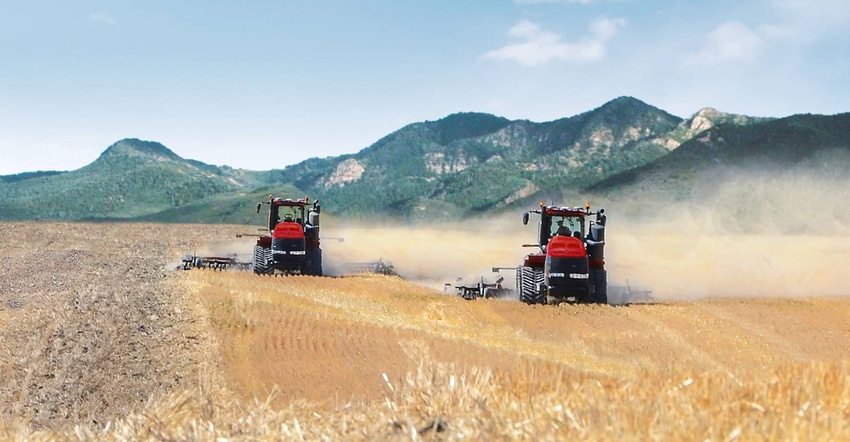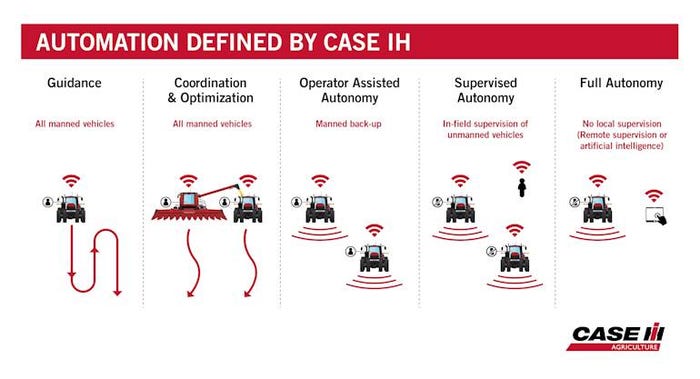March 8, 2018

When writing about what Case IH was offering at the National Farm Machinery Show there was plenty to cover from a new narrow row corn head to a new kind of tillage tech. And I did include a discussion of their look at automation, which I believe bears a deeper look.
In the automotive world where self-driving cars are such a big deal a Ford CEO lost his job because he wasn't moving fast enough on the tech. Turns out auto engineers may want you to take your hands off the wheel, and Cadillac has launched its own tech for automated freeway driving. While I love to drive, this tech may help for those long road trips in the future.
For the Society of Automotive Engineers there are five levels of autonomy with Level 0 for the human driver doing everything and Level 5 being an automated system that can perform all driving tasks, under all conditions that a human driver could perform. That highest level may take awhile especially for that self-driving car navigating traffic in a major city after a blizzard.
But Level 4 for cars with an automated system that can conduct driving and monitor the driving environment, but only operating in certain environments under certain conditions, is closer to reality every day. I even saw automated cars mapping routes in Phoenix a few weeks ago in a Volvo-Uber program – yes there were drivers in the car, but they're teaching those systems how to drive. No word on how they react to snow bird drivers in Phoenix only in the winter.
Back to agriculture.
For agriculture, the levels of automation are a little different. Case IH and New Holland are both moving ahead on this topic. Case has been publicly out-front, and is getting involved in a field trial of its automated tractor system with Bolthouse Farms in California this season. The tractors will be pulling tillage equipment to start. They've automated Steiger machines for that job for now.
At that recent Case IH media conference, the company showed off its 6 levels of automation – one level more than for the self-driving cars. As noted in the graphic below, Case IH starts with a GPS Auto-steering tractor, with an operator in the cab.
The next level is coordination – like tractor with grain cart linked to combine.
The operator-assisted with "manned backup" is the next level, and this could be one fully autonomous machine following a machine with an operator through the field. Many larger farmers like this idea for managing labor costs.
In the next level of supervised autonomy, the machines run on their own and someone sits nearby to manage several machines. This is probably closer than we think though there are some logistics concerns.
The highest level is one where there is no supervision in the field. It could be remote, or there may be no monitor at all. Artificial intelligence could be part of that level in the future. This is future stuff, but I believe could be closer than we think.
The forces driving automation include lack of labor and the growing need to farm more acres as a single owner to remain profitable in agriculture. This is a long way from being a reality, but it is happening and companies like Case IH and New Holland are moving forward. John Deere is also working on the tech, and I've seen automated Fendt machines in a demonstration. Everyone is looking for ways to maximize field efficiency.
Look at the graphic below showing those levels of automation, and consider how they may impact your own farm in the future. And for the reader who likes to drive a tractor, those days aren't going anywhere – automation is a choice, you can still enjoy some solid seat time. Though you may find yourself alone.

LEVELS TO UNDERSTAND: Case IH has defined levels of automation as this technology evolves for agriculture. It's a way to look at this technology going forward.
About the Author(s)
You May Also Like






